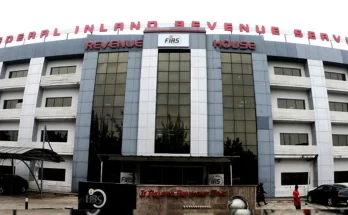Nigeria is set to triple the Capital Gains Tax (CGT) on profits earned by foreign investors trading in local equities — from 10% to 30%, effective January 2026.
The new rate, announced by the Federal Ministry of Finance, forms part of the country’s latest fiscal reforms aimed at increasing non-oil revenue and promoting domestic reinvestment.
However, the ministry clarified that foreign investors who reinvest their gains in Nigerian securities—whether listed or unlisted—will be exempted from the higher levy.
Policy Context: Reforming for Fiscal Sustainability
The announcement follows a strong rebound in Nigeria’s capital market, which has recorded a 40% rally in 2025. The surge has been largely attributed to President
- Fuel subsidy removal
- Naira liberalisation
- Monetary policy tightening
These measures have collectively improved market confidence and attracted both domestic and foreign participation.
Despite these gains, fiscal authorities are pushing to capture more tax revenue from speculative foreign inflows, which often exit the market without reinvestment, creating short-term volatility.
Analysts Warn of Possible Market Reactions
Market analysts predict that the new CGT regime may lead to profit-taking by foreign investors before the end of 2025, as investors seek to lock in gains before the higher tax takes effect.
“While the government’s goal is to strengthen tax collection, there’s a risk that the market could see temporary outflows or a slowdown in foreign participation,” said a Lagos-based investment strategist.
Data from the Nigerian Exchange Group (NGX) shows that foreign investors accounted for about 21% of total trades, valued at approximately ₦1.45 trillion ($1 billion), in the first eight months of 2025.
Balancing Revenue Generation and Market Stability
Fiscal policy experts view the move as part of the government’s broader tax modernisation strategy, which seeks to align Nigeria’s capital gains tax regime with international standards.
Nigeria’s current 10% CGT rate—among the lowest in emerging markets—has long been criticised for limiting the country’s revenue potential, especially given the size of its investment inflows.
By adjusting the rate to 30%, the government aims to increase fiscal inflows, promote capital retention, and reduce speculative trading by encouraging investors to reinvest within Nigeria.
Incentives for Reinvestment
According to the Finance Ministry, investors who channel their proceeds into Nigerian assets—including bonds, infrastructure funds, or new equity issuances—will remain eligible for full CGT exemptions.
This is designed to encourage long-term participation in the domestic market, enhance liquidity, and support government infrastructure financing needs.
Aligning with the New Tax Reform Framework
The tax hike is one of the measures introduced under Nigeria’s new fiscal policy framework, which also includes the Nigeria Tax Act (NTA), 2025, and the Nigeria Tax Administration Act (NTAA), 2025.
These reforms are expected to raise Nigeria’s tax-to-GDP ratio from the current 13% to 18% by 2030, a goal aligned with the country’s medium-term fiscal strategy.
In a statement, the Finance Ministry noted that “the updated capital gains regime reflects Nigeria’s commitment to fair taxation, economic self-reliance, and responsible fiscal governance.”
What This Means for Investors
- Effective Date: January 1, 2026
- New CGT Rate: 30% on foreign equity profits
- Exemption: Investors who reinvest proceeds in Nigerian securities
- Objective: Encourage long-term reinvestment, reduce capital flight, and increase non-oil revenue
Conclusion:
With Nigeria pushing for fiscal consolidation and deeper market reforms, the tripling of the capital gains tax for foreign equity investors signals a new phase of assertive tax policy.
While the measure could momentarily unsettle market activity, it underscores the government’s determination to ensure that investment profits contribute fairly to national development.




